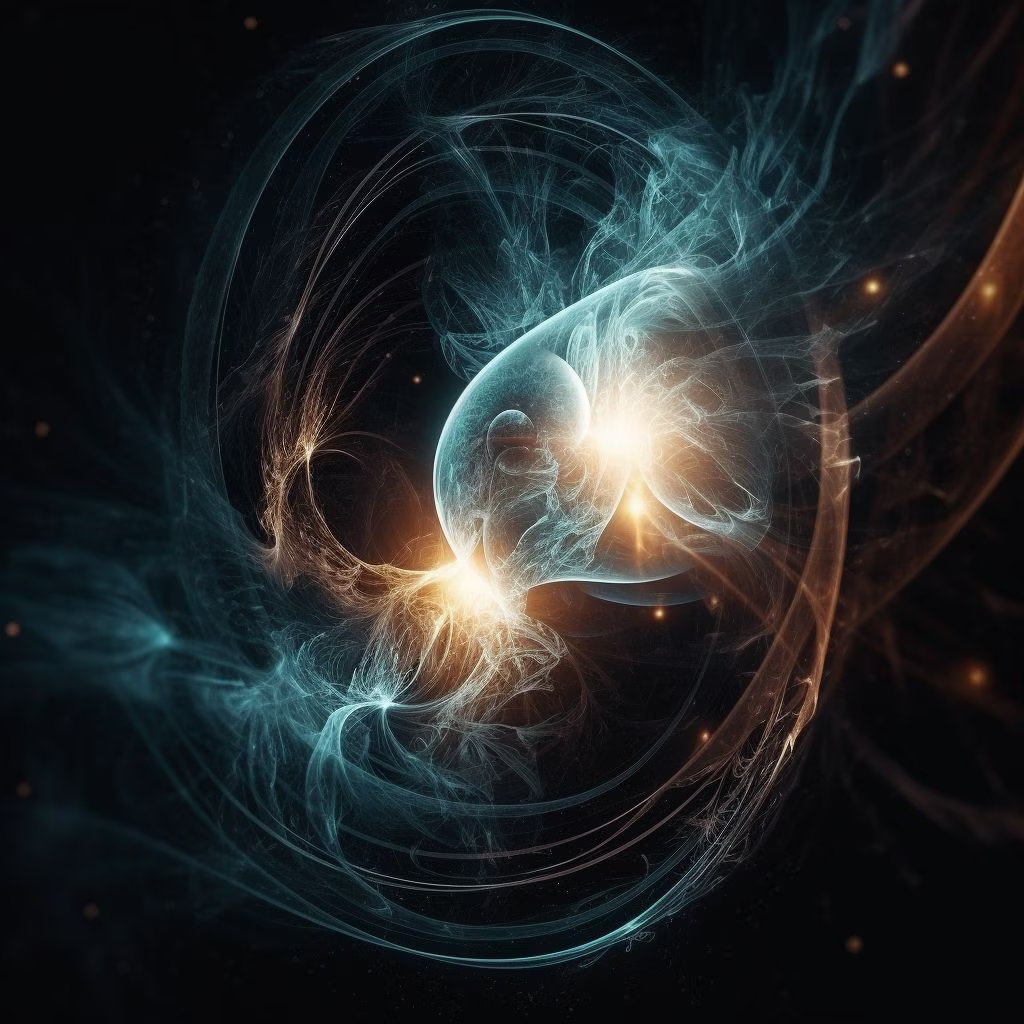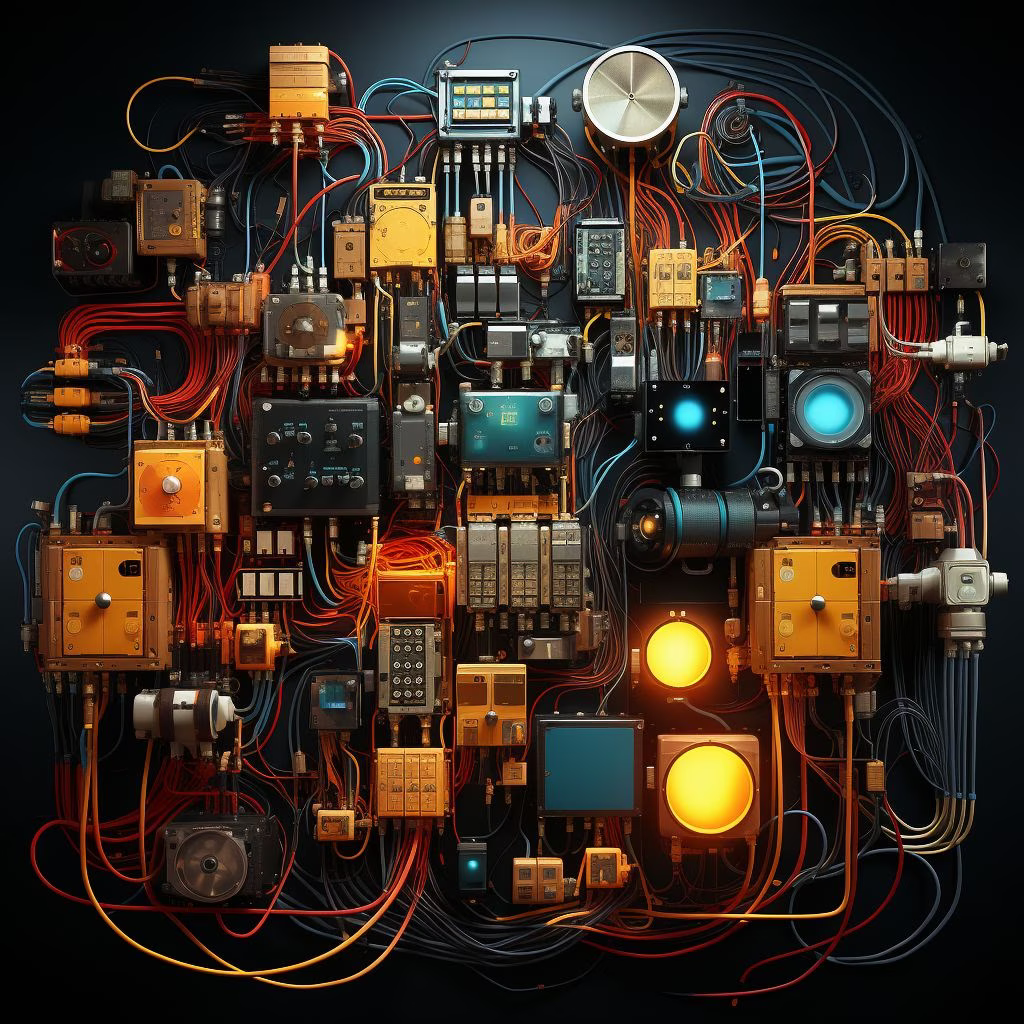Why and How I Believe We'll Attain AGI by 2025-2028

I have a strong intuition about how we’ll achieve both AGI and consciousness in machines.
Keep in mind: it’s just an intuition. And I’m not a triple Ph.D. in AI or anything. But I don’t think I—nor anyone else—has anything solid to stand on with this stuff, so intuition / hypothesis is what you’ll get here. So what that throat-clearing out of the way, let’s get into it.
First a definition
To start, here’s how I’m defining AGI.
An AGI is a synthetic, autonomous intelligence system that:
1. can process information and apply it to new situations
2. can do this for any intelligence-based task
3. can do this as good or better than an average human professional in a given field
The key is disparate components talking to each other
This is my hypothesis for how we've developed our present human capabilities. Our cognitive evolution comprises:
Goal-driven creativity
Personal experiences
The perception of control or agency
I think these attributes stem from different regions of our brains (and minds) that are:
a) Distinct from one another, and
b) Interlinked in numerous ways.
I got this idea in 2014 after reading Sam Harris’ >Waking Up >. In that book, Sam talks about how you can lose major components of your humanity by disrupting either the components themselves (like having a tumor present), or the connections between components (like from a penetrating head injury).
The best example is when you can surgically isolate two sides of the brain (via the Corpus Callosum) > and have one side do things that the other side then explains that it did—when we know that it didn’t. Like you can show the left side of the brain that you knocked over a glass on accident, and the unconnected right side will say that "the wind blew it over", which it just made up.
Then there are multiple examples where someone gets a tumor in their brain and suddenly loses the ability to control impulses. Like the serial killer > who didn’t know why he wanted to kill people, only to find out he had a massive tumor in the spot that can cause this.
❝If you don’t believe we’re a functional illusion, try to think of something creative and ask yourself whose voice you’re hearing. You have no idea how that’s getting to you. It might as well be an alien sending you signals.
In other words, we’re not seeing perfection. What we have going on in our minds is a very precarious balancing act where things just barely work, and if you harm any of the components or the communication paths, things go wonky in very strange ways. But the result of them working well is a fully functioning human. And a miracle.
Evolution had hundreds of millions of years to strike this precarious balance. It had all that time to tweak the components themselves having enough neurons, synapses, etc., and to tweak the connections between these components in precisely the right way. I.e., sending precisely the right signals, between the right components—at the right time—to generate the functional miracle/illusion that we live every day.
Looking at the components in detail

So now let’s pull that hack-a-mind model into AI.
What are the components, communication paths, and knobs and switches we can play with?
Luckily, we have some knowledge > of that from public knowledge out of OpenAI, Google, Meta, and others. Here are some of the major knobs they’re tweaking in their training to get to the current state of the art in 2023.
The size of the neural net (number of nodes and layers)
The amount of data trained
The diversity and quality of the data trained
The amount of compute used to train
Time spent training
The use of multiple models interacting with each other
There is tons of complexity in all of those components. And infinite combinations of size, what connects to what, what gets shared with what, in what order, etc.
But we don’t have to wait millions of years to make our iterations.
OpenAI didn’t invent a new neural net to go from GPT-3 to GPT-4. It’s the same stuff in the list above, just more of this, less of that, more of that, put in different configurations.
The intuition
The core intuition—and it really is just that—is that the whole thing is a massive hack. Intelligence. Consciousness. All of it.
❝Real magic, in other words, refers to the magic that is not real, while the magic that is real, that can actually be done, is not real magic.
Daniel C. DennettThe brain is mystical because we don’t understand it. But we can see physical differences in the brains of the smartest people and average people, and we know its magic allure predictably breaks when we interrupt specific pieces or communication paths. And we seem to be playing with very similar analogs right now in our current tech.
But we don’t need to understand the human brain. It doesn’t need to be the hack we end up with. That was just how evolution did it. I really don’t see us coming up with a replication of the brain—just as evolution would probably do it differently if you ran the experiment 1,000 more times.
But I think, given the tens of billions that will likely be spent on this over the next few years, I see too many chances for one of those hacks to match—and then exceed—the information processing and generalization of our biological version.
Think of all the advantages we have:
We’re just starting to understand how GPT-4 did what it did
We’re just starting to optimize TPUs
We will soon be able to train on far more and better data
We’ll soon be able to train on thousands of times more compute
We’ll soon be able to train for thousands of times as long
We have multiple teams and companies working on combinations of all these knobs and levers to find hacks that multiply performance
The most powerful companies in the world are pivoting to spend billions on this
Now combine that with the (likely) fact that the human brain is not some paragon of performance, but rather just the result of one system’s very slow hack. And we can barely remember where our car keys are or stop ourselves from ending civilization due to petty warfare.
I think human intellectual performance will soon be shown for what it is, which is an arbitrary tick on a scale that goes very much higher than we can imagine. And don’t see how our manipulation of all these variables doesn’t propel us way above it very soon.
What about consciousness?
Right, and then there is consciousness. Dennet said it best when he said it was basically a series of hacks. I think it comes down to disparate parts of our brain’s processing not knowing about each other, and basically doing a hand off.
And I think we get free will the same way—or the sensation of it anyway. Basically, I think groups of humans who believe in agency and moral responsibility have far better survivability than those that don’t. So we evolved to have that sensation of ownership of our actions.
I don’t see how we won’t either 1) engineer that into an AI, or 2) watch it emerge naturally as an adaptive advantage for the reason above. Again, it’s just another hack.
Summary
I know this all sounds really down on humans. Like, really? We’re just a bunch of biological meat hacks with no specialness?
Yes, but I didn’t say we weren’t wonderful and special >. We are. That’s not mutually exclusive with being a collection of evolution-created meat hacks.
I’m only saying that I think we’re going to be able to surpass ourselves. And sooner rather than later.
NOTES
I am only predicting AGI for 2025-2028. While I think consciousness is quite possible, it’s not nearly as economically interesting. Nor is it required for AGI.